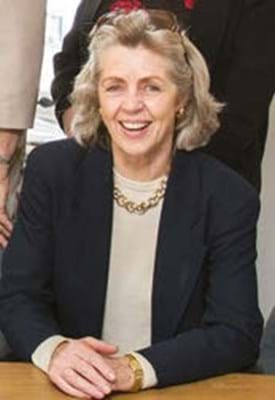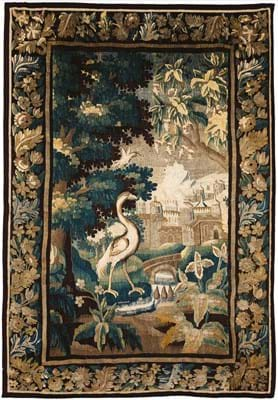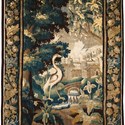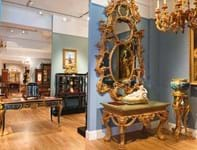Her pipeline of furniture, lighting, mirrors, ceramics, paintings and tapestries from the Continent “is vital to us as we only buy in the EU and we also sell to good EU customers,” she says.
Though a vocal critic of the Brexit project since the June 2016 referendum, Boston’s reliance on stock from France in particular has fuelled a dogged determination to overcome the new bureaucratic challenges.
It means emails and calls to her suppliers “at all hours”, helped by the fact she is fluent in French. “A big shipment coming from Paris means hours of work at this end and at theirs,” she says.
Import VAT burden – and a bit of relief
In these conversations Boston ensures her EU suppliers have “done their bit” by registering for an EORI number (used to track and register customs information in the EU and the UK) and indicating that the objects heading to her shop on the King’s Road, Chelsea, are 100 years old or more.
Proof of age gives some relief on a new burden for UK trade and collector buyers – the requirement to pay import tax.
Documents stating an item is antique ensures it qualifies for a reduced UK import rate of 5% and not the standard 20%. If exporting back to the EU, Boston can claim the VAT back from HMRC – as long as she has kept records of the original purchase.
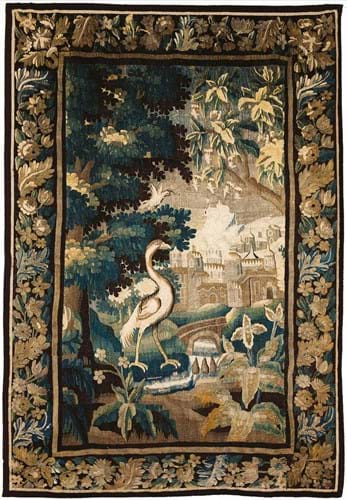
This 18th century Aubusson Verdure tapestry with decorative border is French, c.1760, measures 8ft 9in (2.67m) high x 6ft 1in (1.84m) wide and is for sale for £7000 at Julia Boston Antiques. Bought at a French auction in 2020, Boston estimates that importing this item now would cost 50% more in administrative costs under the new trade rules.
Absorbing costs – to a point
With moving goods in the other direction proving just as time-consuming – paperwork for a shipment to the EU in January took two days compared to the hour it used to take, she says – Boston estimates her administrative costs have risen by half.
Boston will “absorb the extra costs – to a point,” she adds, fearing the import tax on her EU purchases could give European competitors an advantage that could be difficult to mitigate.
“One has to make it as easy as possible to buy. As exports from the UK have no VAT, we can take a hit on the extra shipping costs. It’s a balancing act between those costs and the savings we make on import VAT, which will depend on the value of the object.”
With stock ranging from £65 for a cushion to six figures for a tapestry, Boston’s business has survived a deliberate move upmarket and several recessions.
“This experience is proving really hard, making any kind of trade with the EU more expensive, slow and difficult,” she says. “But I’m not walking away from the Continent as our primary inspiration for the stock we have a reputation for having.”
Top tip
Boston adds: “Demand is dictated by tastes as much as anything. The task is still about hunting out the stuff that’s good quality and ensuring you can still make a margin on it.”


